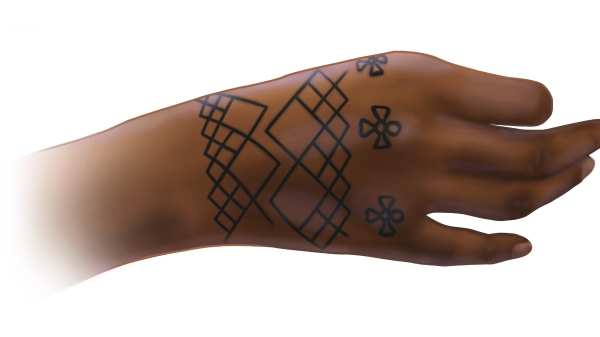ASU faculty create AI-powered ‘buddy’ to help online students learn language

ASU Assistant Teaching Professor of German Christiane Reves presented the concept of "Language Buddy," a custom GPT created to assist online students in practicing their language skills, to over 500 of the university’s IT professionals at ASU's AI Innovation Challenge. Photo by Mike Sanchez/ASU Enterprise Technology
When it comes to language learning, communication is the ultimate goal. Improved linguistics, comprehension, grammar, vocabulary and pronunciation are just some of the benefits of learning a language through speaking.
But for communication to take place, you need a partner. And that’s not always possible for students in ASU Online language courses; diverse student body learning needs and scheduling demands can make it challenging to hold synchronous instruction and virtual peer meetups.
Christiane Reves, an assistant teaching professor of German in Arizona State University’s School of International Letters and Cultures, and colleagues in her department think that “Language Buddy” — a custom GPT they created in ChatGPT Enterprise as part of the university’s AI Innovation Challenge — could be the solution.
Powered by generative artificial intelligence (AI), Language Buddy will allow students to participate in conversations at their language level — anytime, anywhere.
“The more opportunities you have to communicate in a foreign language, the more you advance and have fun with it,” Reves said.
New to generative AI, when Reves and her collaborators first gained access to ChatGPT Enterprise, they started slow, exploring its general features and capabilities. For the past month, they have been training the Language Buddy GPT using the dictation function to create a space for students to practice free speaking and interacting directly with the bot.
Currently, the team is exploring how well Language Buddy can interact with students based on the prompts given, and training the technology to be more human-like and to interact at an appropriate language level. Ideally, they would like Language Buddy to be able to have conversations with beginner-level students (based on course content), generate a transcript of the conversation and provide tailored feedback for the student.
“We’re trying to encode expertise into the bot so it acts on the respective language level,” said David Parks, head of Learning Support Services within the School of International Letters and Cultures. “ChatGPT has no idea what you’re trying to do, so we’re really trying to reign it in, in the context of the classroom.”
While Reves and Parks take on experimenting in the mobile app and practicing speaking with ChatGPT Enterprise, Kristin Elwood, director of digital initiatives and instructional design and a clinical assistant professor at the School of International Letters and Cultures, is focused on fine-tuning the prompts.
So far, the team has found that Language Buddy can hold conversations, but after a few minutes of interaction, the bot’s vocabulary becomes too complex for the average novice language learner to continue with the conversation. The next step is to establish and define language levels within ChatGPT Enterprise, as the coursework follows American Council on the Teaching of Foreign Languages (ACTFL) Proficiency Guidelines.
Once the team figures out how to best train the bot to conduct level-conscious conversations that are relevant to what students are learning in the classroom, they say it will not only allow for unlimited practice but will also be a major benefit to students who are shy.
“With AI, people will feel less judged,” Elwood said.
The team has received an extension for the summer 2024 round of the AI Innovation Challenge to continue their work, and they’re excited for students to have the opportunity to try Language Buddy over the summer.
“Their feedback will help us with the next stage of development,” Reves said.
While the current iteration of Language Buddy is geared toward German students, if it is successful, the team plans to create GPTs for additional languages.
More Science and technology
Findings on adenoviruses in baby gelada monkeys provide a window into our own cold and flu season
If you have young kids or spend time around day care centers, you know the drill: Someone gets a cold, and soon the whole group is sniffling and sneezing. Now imagine that same pattern playing out in…

Student teams create AI tools to help neurodivergent learners
When Stevie Cervantes was a first-year student at Arizona State University, she shied away from using AI.“AI was everywhere and my friends were asking me, ‘Oh, do you use ChatGPT?’ And I hadn’t even…

ASU researchers shed light on ancient tattoos in the Nile Valley
Long after an archaeological excavation, discoveries can still be made. One such example of this is newly discovered tattoos from ancient Nubia, nearly doubling the amount previously known from the…